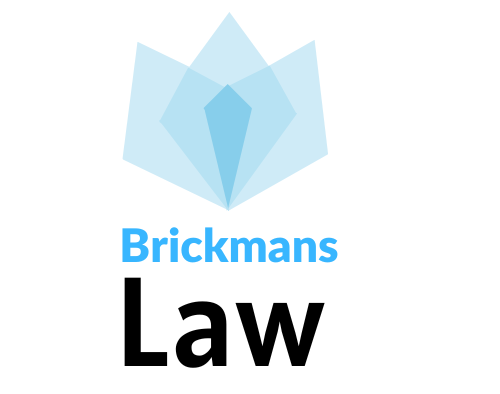Crowdfunding For Small To Medium Scale Businesses: (An Analysis Under The Nigerian Law)
Crowdfunding is the practice of funding a project or venture by raising money from a large number of people who individually contribute a relatively small amount, typically via the internet.
There has been a huge rise in the number of business men and women seeking funds online in the past few years. This number is projected to increase in the course of the next few years. However, there are restrictions on crowdfunding by the SEC and financial regulatory bodies with its main objective being to restrict fraud.
The major reason for this is, a relatively reduced interest rate and easier access to capital. Crowdfunding also allows businesses more flexibility to set the terms and conditions for raising funds.
There are several types of crowdfunding:
- Reward based crowdfunding
- Donation based crowdfunding
- Debt crowdfunding
- Equity crowdfunding
There are several crowdfunding platforms in Nigeria Kickstarter, NaijaFund , Funda Enterprise, CircleUp, MicroVentures, Indiegogo, with the most popular being GoFundMe.
LEGAL FRAMEWORK FOR CROWDFUNDING SMALL TO MEDIUM SCALE BUSINESS IN NIGERIA.
SMEs are non-subsidiary, independent firms/organisations which employ fewer numbers of employees than large enterprises. The European Union (EU) has described SMEs as categories of micro, small and medium-sized enterprises which employ fewer than 250 persons and which have an annual turnover not exceeding 50 million Euros.
In Nigeria, the Central Bank of Nigeria in its monetary policies circular No. 22 of 1988 defined SMEs as enterprises which have an annual turnover not exceeding Five Hundred Thousand Naira (N500,000.00).
Small and Medium Enterprises Development Agency (SMEDAN) 2007 defines Small Enterprises as a business having between 10-49 employees, and N5,000,000 to N50,000,000 (excluding land and buildings); Medium Enterprises is defined as a business having between 50 -199 employees, and N50,000,000 to N500,000,000 (excluding land and buildings).
The SEC (Securities and exchange commission) is the regulator of the capital market in Nigeria.
Section 67(1) of the Investment and Securities Act, 2007 states as follows:
“(1) No person shall make any invitation to the public to acquire or dispose of any securities of a
body corporate or to deposit money with any body corporate for a fixed period or payable at call,
whether bearing or not bearing interest unless the body corporate concerned is-
- A public company, whether quoted or unquoted and the provisions of Sections 73 to 87 of
this act are duly complied with; or
- A statutory body or bank established by or pursuant to an act of the National Assembly
and is empowered to accept deposits and savings from the public or issue its own
securities (as defined under this Act), promissory notes, bills of exchange, and other
instruments.”
Additionally, Section 22(5) of the Companies and Allied Matters Act 2020 specifies that:
“A private company shall not, unless authorized by law, invite the public to
● Subscribe for any share or debenture of the company; or
● Deposit money for fixed periods payable at call, whether or not bearing interest”
Only public companies, whether quoted or unquoted, are permitted to ask the public to acquire or dispose of their securities. Private Companies are officially prohibited from engaging in crowdfunding in Nigeria, as it has been declared that they should refrain from equity crowdfunding, which is soliciting members of the public to give funds in exchange for a stake in the company.
On 15 August 2016, the Securities and Exchange Commission (SEC) issued a statement suspending all crowdfunding activities due to legal difficulties, as the Capital Market Regulations and Laws did not anticipate or create provisions to cover crowdfunding activities.
The Commission published new rules on the 21st of January 2021, one of which concerns Crowdfunding: the rules apply only to Investment-Based Crowdfunding. The following are the essential players in a Crowdfunding process, as stipulated by Rule 1 of the SEC Rules on Crowdfunding 2021:
Crowdfunding Intermediary, Crowdfunding Portal, Fundraiser / Issuer, Investor
Rule 5(a) requires the SEC to regulate all Crowdfunding Platforms. It stipulates the following:
“Every portal that facilitates, operates, provides or maintains interactions between fundraisers and investing public (crowd) in Nigeria for the purpose of an investment-based Crowdfunding shall be operated only by an entity registered as a Crowdfunding intermediary.”
Furthermore, funds may be raised only through Crowdfunding Portals that are administered by SEC-registered entities with a minimum paid-up share capital of N100 million. In terms of investment limits, the regulations prohibit retail investors who are neither High Net Worth nor Sophisticated Investors from investing more than 10% of their yearly income.
Additionally, the rules let Micro, Small, and Medium-Sized Enterprises (MSMEs) organised as corporations with a minimum of two years of operating history to raise funds in exchange for investment instruments through a Crowdfunding Portal run by a registered Crowdfunding Intermediary. Additionally, it allows for incorporation of MSMEs with less than two years of operational experience but with a strong technical partner with a minimum of two years of operating experience or with a core investor.
The aggregate amount of securities or investment instruments that can be offered in a 12-month period is 100 million naira for medium-sized businesses, 70 million naira for small businesses, and 50 million naira for micro businesses.
Notably, the following entities are prohibited from fundraising through a fundraising portal:
1. Complex structures
2. Companies that are publicly traded and their subsidiaries.
3. Businesses that lack a clear business strategy.
4. Businesses that intend to use the funds obtained to provide loans or invest in other businesses.
5. Other entities as the commission may specify.
The key provisions of the Rules are as follows;
Eligibility: The Rules allow Micro Small and Medium Enterprises (MSMEs) incorporated as a company with a minimum of two-years or less operating track records to raise funds through registered crowdfunding portals in exchange for investment instruments.
Under the Rules, certain issuers may be exempted from prior registration provided that the issuer is an entity incorporated in Nigeria and is accredited by a crowdfunding portal to utilise its platform. Also, the aggregate amount of securities or investment instruments that can be offered and sold by the issuer within a 12-month period shall comply with the following limits:
The maximum amount which may be raised by a Medium enterprise shall not exceed 100 Million.The maximum amount which may be raised by a Small enterprise shall not exceed 70 Million.The maximum amount which may be raised by a Microenterprise shall not exceed 50 Million.
The Rules also provide that every entity involved in crowdfunding in Nigeria must be registered with the Commission. The key participants are the fundraisers, the investors and the intermediaries. The fundraiser is the originator, maker or obligor of the investment instrument to be issued. The investor is defined in the Act as any person or entity that seeks to make, are making, or have made an investment in an investment vehicle with the expectation of achieving returns.
Rule 4(a) of the Rules of Crowdfunding 2021 provides that, “every portal that facilitates, operates, provides or maintains interactions between fundraisers and investing public (crowd) in Nigeria for the purpose of an investment based crowdfunding shall be operated only by an entity registered as a crowdfunding intermediary”. The Crowdfunding Intermediary is the entity that operates the Crowdfunding Portal. They are required to be registered with the SEC. The Rules place further responsibility on the intermediaries, which are information disclosure, due diligence, reporting obligations, data protection and privacy, operation of a trust account, compliance and restriction on cross-ownership.
CONCLUSION
The provisions of the Companies and Allied Matters Act and the Investment and Securities Act need to be amended to make provision to allow crowdfunding of private companies. As at the time of writing this article, crowdfunding by private companies is still in its infancy. Nonetheless, the Rules on Crowdfunding 2021 is a welcome development that seeks to regulate crowdfunding in Nigeria. This would encourage more startups to spring up as well as support small and medium scale businesses. It is, however, important to note that effective implementation of these Rules would ensure proper compliance with its provisions and the Commission is charged with this responsibility.






